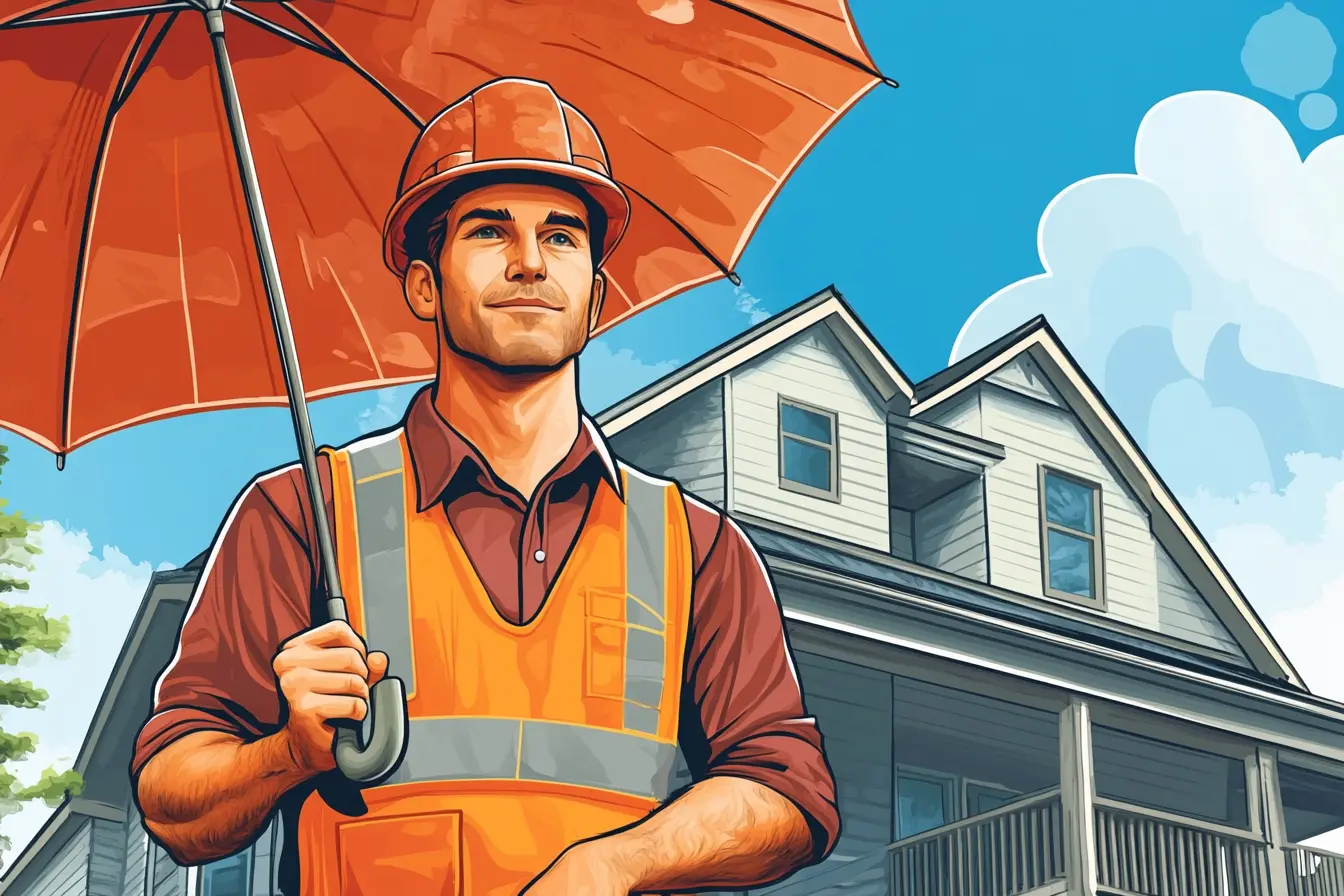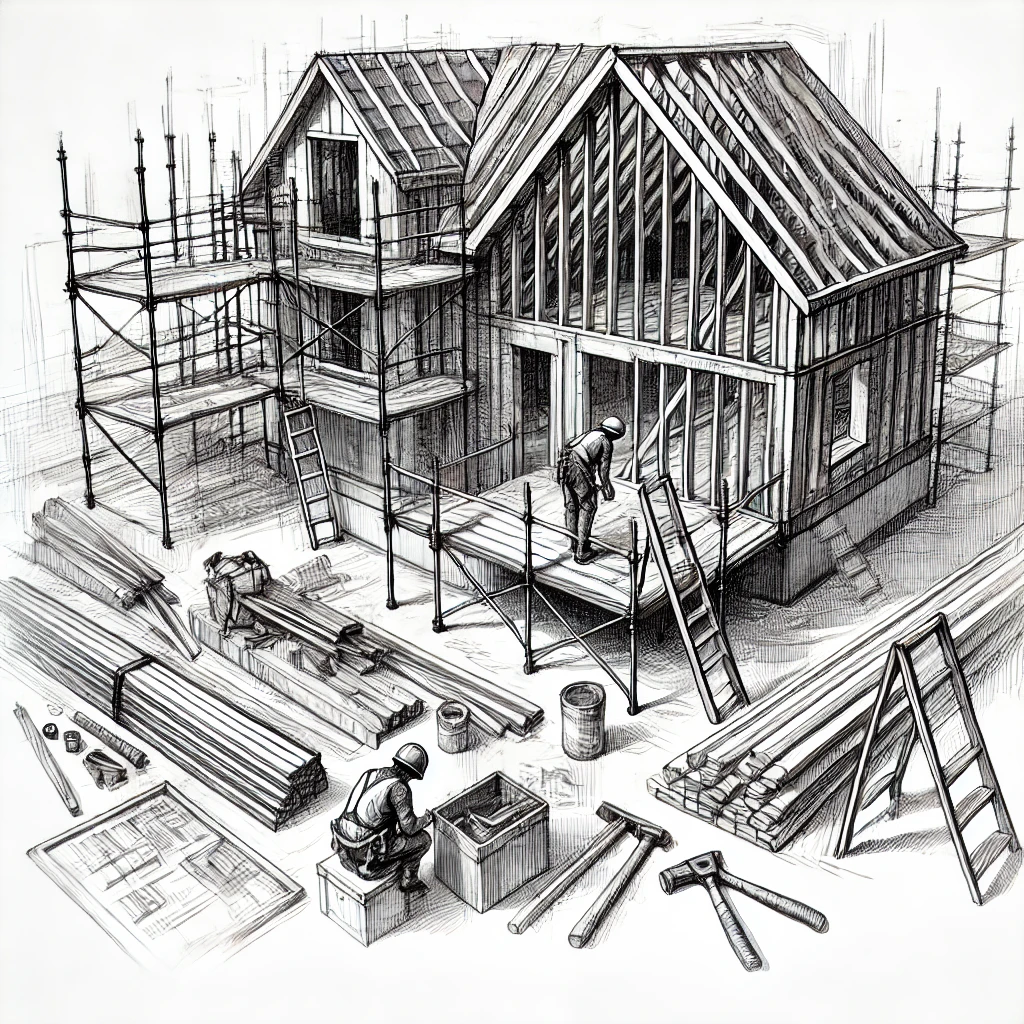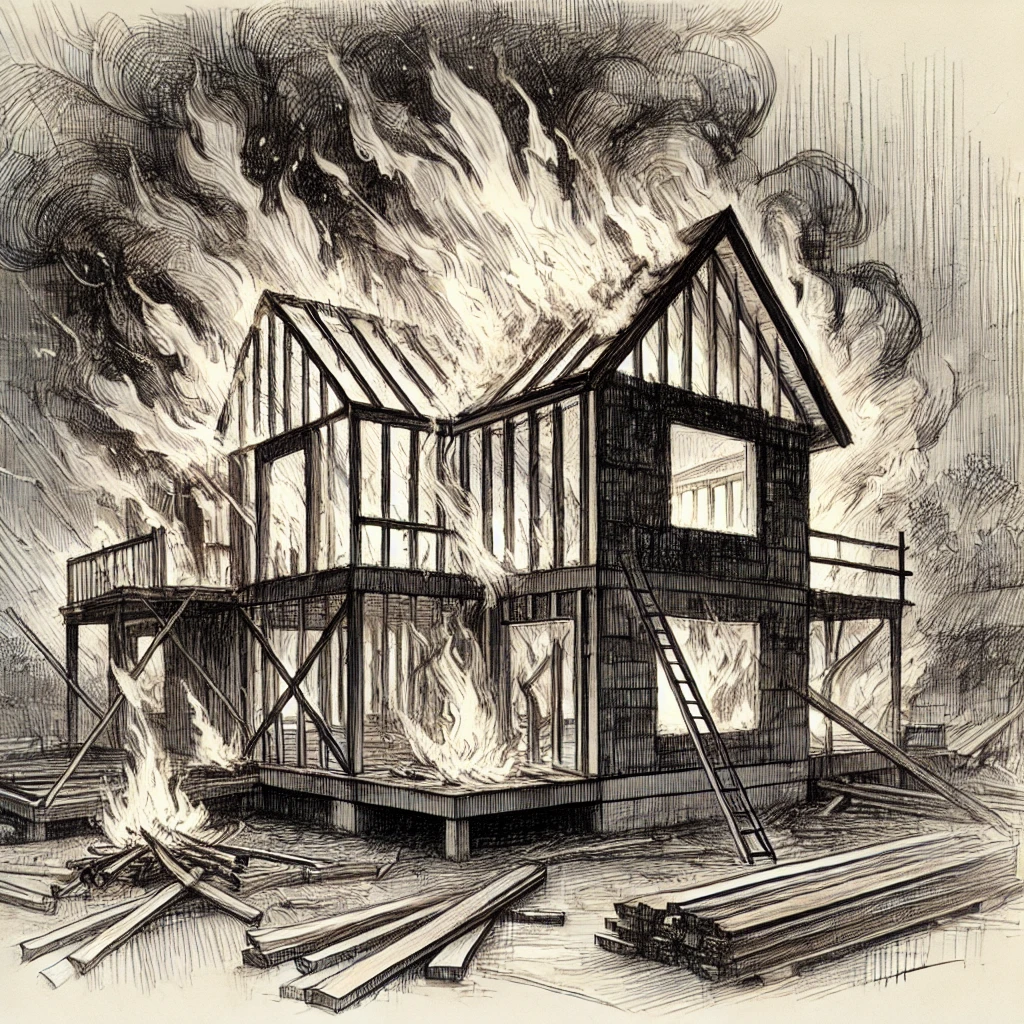Builders Risk Insurance

Builders risk insurance, also known as "course of construction" insurance, is designed to protect buildings and structures that are under construction, renovation, or repair. It covers physical damage to the construction site, materials, and partially completed structures, ensuring that owners, contractors, and developers are protected from potential financial losses during construction projects.
This article explains how builders risk insurance works, what it covers, and why it is essential for those involved in construction projects.
Why Builders Risk Insurance is Important
Construction sites are exposed to a range of risks that can disrupt projects and cause financial setbacks. Builders risk insurance offers several key benefits:
Protects Against Project Delays: It provides financial coverage for delays caused by damage to structures or materials, helping to keep projects on track.
Covers High-Value Materials & Equipment: It ensures coverage for building materials, equipment, and temporary structures on the job site.
Reduces Financial Risk: It protects against major financial losses that could otherwise fall on property owners, contractors, or developers.

How Builders Risk Insurance Works
Builders risk insurance is typically purchased before construction begins and remains in effect until the project is completed. It covers various types of structures, from new builds and renovations to major repairs and additions.
What Builders Risk Insurance Covers
Builders risk insurance offers broad protection for a variety of risks during the construction process:
Property Damage
Covers physical damage to the structure under construction, including damage caused by:
Fire
Windstorms or hail
Vandalism
Theft (e.g., stolen materials or equipment)
Lightning
Explosions
Construction Materials & Supplies
Protects materials and supplies at the job site, in storage, or in transit. This ensures that high-value materials like Steel, lumber, Plumbing fixtures, or roofing materials are covered against theft, damage, or loss.
Temporary Structures
Covers temporary structures like Scaffolding, fencing, and trailers, which are necessary for the construction process but are vulnerable to damage from weather events, accidents, or theft.
Equipment Breakdown
Provides coverage for damage to equipment used during construction, such as generators, heating units, or water pumps. This coverage is essential for large projects that rely heavily on equipment.
Debris Removal
Covers the cost of removing debris after a covered loss, ensuring that cleanup efforts do not delay construction progress.
Soft Costs Coverage (Optional)
Covers indirect costs that may arise from construction delays, such as:
Additional interest on construction loans
Architectural or engineering fees for project redesign
Permits, licenses, or re-inspection fees
Extended legal or administrative costs
Water Damage
Protects against damage caused by water intrusion, such as leaks or burst pipes. However, flood coverage usually requires a separate endorsement.
Coverage Extensions (Optional)
Builders risk insurance can be extended to cover risks specific to the project, such as:
Ordinance or Law Coverage: Covers costs associated with changes in building codes or ordinances during construction.
Pollution Cleanup: Covers expenses related to pollution cleanup if hazardous materials are accidentally released during construction.
What Builders Risk Insurance Does Not Cover
While builders risk insurance offers comprehensive protection, there are specific exclusions:
Liability Claims: Builders risk insurance does not cover liability claims for injuries to workers, contractors, or visitors. Separate general liability insurance is needed for this protection.
Professional Errors or Negligence: It does not cover errors in design, workmanship, or materials. Professional liability insurance may be needed for design errors or engineering mistakes.
Wear & Tear: Damage caused by normal wear and tear, rust, corrosion, or defects in materials is excluded from coverage.
Acts of War or Terrorism: Builders risk insurance does not cover damage caused by acts of war, terrorism, or nuclear hazards unless specifically endorsed.
Earthquake & Flood Damage: Standard builders risk policies usually exclude earthquake and flood damage, but coverage can be added through separate endorsements or policies.

When to Consider Builders Risk Insurance
Builders risk insurance is essential for anyone involved in a construction project, including:
Property Owners & Developers
Property owners or developers should purchase builders risk insurance to protect their financial investment in the construction project.
General Contractors
General contractors responsible for managing construction projects should obtain builders risk insurance to cover materials, labor, and equipment during the building phase.
Subcontractors
Subcontractors may need builders risk insurance to protect materials and equipment they bring to the job site, ensuring their investments are covered.
Financial Lenders
Lenders often require builders risk insurance as a condition of construction loans, ensuring that their financial interests are protected in case of damage or delays.
Homeowners & Renovation Projects
Homeowners undergoing significant renovations, such as room additions, kitchen remodels, or structural changes, should consider builders risk insurance to protect their homes during the renovation process.
How to Purchase Builders Risk Insurance
Follow these steps to secure builders risk insurance for your construction project:
Assess the Project’s Scope & Risks
Consider the size, value, and complexity of the project, as well as potential risks like weather conditions, crime rates, and natural hazards in the area.
Determine Coverage Limits
Set coverage limits based on the total value of the project, including materials, labor, and soft costs. Ensure that limits are sufficient to cover potential losses.
Select Policy Duration
Builders risk insurance policies typically last for 3, 6, or 12 months, depending on the expected project duration. The policy can be extended if the project timeline changes.
Choose Additional Coverages
Add endorsements for specific risks, such as flood or earthquake coverage, soft costs, or ordinance and law coverage, to customize protection for the project’s needs.
Contact an Experienced Provider
Work with an insurance provider specializing in builders risk insurance to obtain quotes, review policy options, and compare costs.
Review Policy Details
Carefully read the policy to understand covered perils, exclusions, deductibles, and Claim procedures. Ensure the policy meets the specific needs of the project.

Examples of Builders Risk Insurance Claims
Understanding real-world scenarios can help illustrate how builders risk insurance works:
Fire at a Construction Site
A fire breaks out at a commercial building under construction, damaging materials and partially completed structures. Builders risk insurance covers the damage, allowing reconstruction to continue without significant financial loss.
Theft of Construction Materials
Thieves break into a job site and steal copper wiring and HVAC equipment. Builders risk insurance covers the cost of replacing the stolen materials, minimizing delays and financial setbacks.
Water Damage from a Burst Pipe
A burst pipe causes water damage to flooring and Drywall in a new home under construction. Builders risk insurance covers the repair costs, ensuring the project stays on schedule.
Vandalism at a Job Site
Vandals spray graffiti on the exterior walls of a partially completed building. Builders risk insurance covers the cost of removing the graffiti and repairing any damage.
Windstorm Damage
High winds damage roofing materials and scaffolding at a construction site. Builders risk insurance covers the repairs and replacement of materials, preventing delays.
How Builders Risk Insurance Complements Other Policies
Builders risk insurance works alongside other insurance types to offer complete protection:
General Liability Insurance
Covers third-party injuries or property damage claims related to the construction site, while builders risk insurance covers physical damage to the structure and materials.
Workers’ Compensation Insurance
Covers injuries to construction workers, ensuring protection for the workforce, while builders risk insurance focuses on physical property damage.
Commercial Property Insurance
Once construction is complete, commercial property insurance takes over to cover the building and its contents against ongoing risks.
How to Maximize Builders Risk Insurance Protection
Here are some steps to ensure comprehensive protection with builders risk insurance:
Implement Security Measures
Use security measures like surveillance cameras, fencing, and lighting to reduce theft, vandalism, and liability risks on the construction site.
Store Materials Safely
Store construction materials in secure, weatherproof areas to minimize damage from weather events or theft.
Use Licensed & Insured Contractors
Ensure all contractors and subcontractors are licensed and carry their own insurance to prevent potential coverage gaps.
Maintain Regular Communication
Keep open communication with your insurance provider about project updates, potential changes, or extensions needed for the policy duration.
Additional Resources
National Association of Home Builders (NAHB): Provides resources for contractors, builders, and developers on risk management during construction. Visit NAHB for guidance.
Insurance Information Institute (III): Offers insights into builders risk insurance, including coverage options, best practices, and policy recommendations. Visit III for more information.
Construction Financial Management Association (CFMA): Offers resources on financial management for construction projects, including insurance needs. Visit CFMA for details.
Wrap-Up
Builders risk insurance is crucial for protecting construction projects from financial losses due to damage, theft, or delays. By understanding coverage options, selecting appropriate limits, and adding necessary endorsements, property owners, contractors, and developers can ensure comprehensive protection for their construction investments.
Consult with an experienced insurance provider to explore policy options, understand terms, and secure the right builders risk insurance for your project.